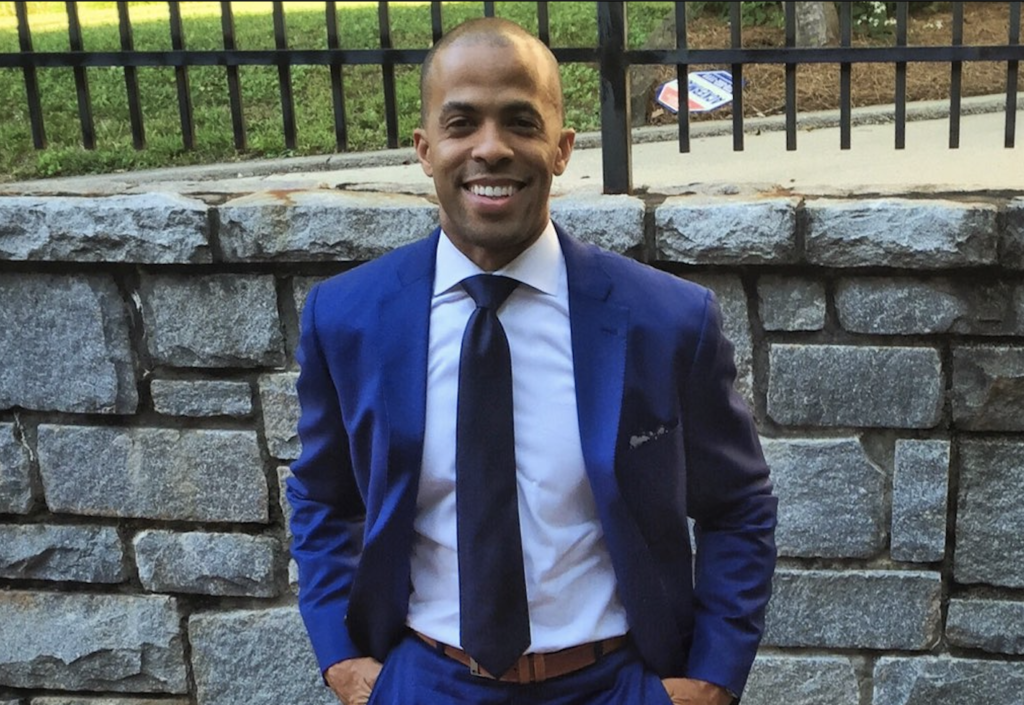Not too long ago I chatted with my friend Khadir Richie, who is probably the best example I can think of as far as how diverse his life and circle of friends are.
We chatted about a number of things, but the theme seemed to revolve around how having a diverse circle of people in one’s life is important. It can help humanize and understand people in an entirely different way that perhaps wasn’t possible before getting to know someone.
Below are some of the highlights from our conversation.
- 5:00 – Khadir offers his definition of racism.
- 9:00 – Khadir describes a time that helped open his eyes as to how people can come to false conclusions about others.
- 12:00 – Khadir shares two vulnerable stories involving encounters with police.
- 24:00 – I ask why he thinks so many new people are now interested in opposing racial injustice and if it’s encouraging to him.
- 30:00 – Khadir describes running a foot race against someone who is weighted down by cinderblocks to depict benefits of slavery.
- 32:30 – This is the article I referenced with the quote I shared.
- 35:00 – Khadir shares his thoughts on the phrase “black-on-black” crime.
- 38:00 – For more on the (&) Campaign, check out their website.
- 42:00 – I ask Khadir what he thinks it will take for this era of fighting for racial justice and reconciliation to be different.
- 45:30 – This is an article about the recent outburst by the former CEO that Khadir mentioned.
- 48:00 – Khadir shares how having a diverse circle started early in his life and he remembers his late friend Kenneth Gatling.
- 52:00 – Khadir offers advice for anyone who would like to expand the diversity of their circle.
I always appreciate his thoughts and hearing what he has to say, and I hope you will, too.

Totally disagree with the rejection of sympathy, which is the first step to action to change the system. As a member of the racial majority if I am not sympathetic then I don’t understand the issue. If I can’t express sympathy and have it accepted, then the monster under the bed remains there. Anger with no attempt at understanding is a platform for martyrdom, which may impede change by angering the person expressing sympathy by having an explanation of reality rejected.
It’s very nice to meet you, Doug. And thanks for taking the time to share your thoughts.
I must admit, I don’t recall myself or Khadir rejecting sympathy. I actually remember Khadir saying his campaign slogan for his fictitious presidential run in 2020 would be, “Make America Love Again.” He also said empathy is a function of proximity and called for people to see humanity in others. All of which, to me, suggested value in sympathy.
And I agree there is value in it. However, you suggested sympathy is the first step to action to change the system, and I would disagree with that. Changing hearts is valuable, but I don’t see it as a prerequisite for systemic change. And I think of all the historically significant legislation that has been passed even without symapthetic hearts.
August 1862 was almost a year and a half into the Civil War and only one month before the Emancipation Proclamation executive order. And even then, Abraham Lincoln himself said, “If I could save the union without freeing any slaves I would do it; and if I could save it by freeing all the slaves I would do it; and if I could save it by freeing some and leaving others alone I would also do that.” In other words, it wasn’t his dramatically kind and sympathetic heart that compelled him to pass legislation freeing slaves.
And it wasn’t widespread compassion and sympathy that resulted in some of the famous legislation during the Civil Rights movement. That’s not what compelled the Supreme Court’s decision in Brown v Board calling for school integration. And much of the public, especially in the South, was not sympathetic to the decision afterwards, much less before.
As I said, I see value in arriving at sympathy, especially when it comes to changing individuals. But I don’t think sympathy from individuals (or even large groups) is a prerequisite to systemic change. I actually don’t think it’s required at all.
The fight against racism can be fought and won without sympathy from the majority, much less from everyone. The changes to systemic issues can be achieved through new policies. And that change can come at the hands of those calling for new policies and from the policymakers themselves, even with the existence of unsympathetic individuals.
I agree with Mr. Tabet there was nothing in the podcast that rejected sympathy but sympathy doesn’t involve action. The key is communication and actually hearing what each other is saying whether we agree or not. I love the fact that as a non black you are open to discussion and that Mr. Tabet, also non black, is hosting the discussion. It takes real courage from both of you. I salute you both on your courage.